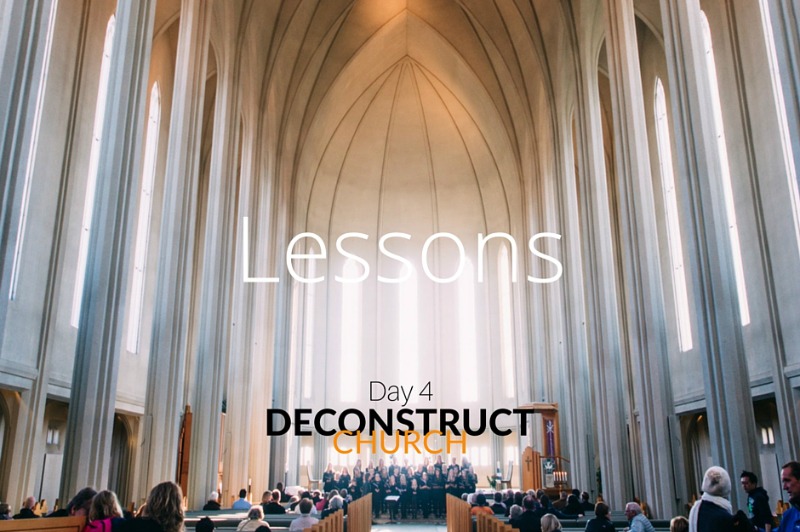We’re in church to worship. And after the big opening, we slow it down, like the second track on an album; it’s time to have a seat, relax, and listen.
Not all groups do worship the same way, but we nearly always read scripture. Arguably, it is the one constant. Even without music or prayer forms or common language, we read from the Bible. Maybe not the same thing as our neighbors, or even the same Bible, but…
There is shared resource. Roman Catholic and Mainline Protestant denominations all read from a lectionary that is, for the most part consistent. And many more have a consistent pursuit to go through all of Scripture in worship over a given amount of time.
 'One of the most dangerous ideas we pass on to one another is that the Bible is useful.' Click To Tweet
'One of the most dangerous ideas we pass on to one another is that the Bible is useful.' Click To Tweet
We often refer to our readings as lessons. This evokes two very strong responses from us.
- We’re supposed to learn something.
- This is like school.
Lessons aren’t merely learnings (I learned my lesson) but a teaching (we had to write our lessons). This narrow view of scripture as a “lesson” deprives it of its diversity, and ability to speak powerfully. We are constantly looking for what can be learned from it, that we might miss that it isn’t merely teaching and learning, but worship and growth and fascination and hope and love and awe that is constantly struggling to come out.
One of the most dangerous ideas we pass on to one another is that the Bible is useful. And not a living thing.
You’ve no doubt heard that great acronym:
Basic
Instruction
Before
Leaving
Earth
which sounds so clever and has the ring of truth to it, but it is horribly delusional. There is nothing basic about it. It isn’t only about instruction: and it isn’t a dictionary or encyclopedia. And don’t even get me started on the “rapture” and premillenial dispensationalism (and all that “leaving earth” entails).
Ask Yourself
When we read from the Bible in church, what is speaking to me? How does it speak? What about it gets to me?
In what way is the reading a lesson? In what way is it something else?
How might I learn differently from the Torah than from the histories? Or from the Wisdom literature to the Prophets? How do I separate the first lesson (often from the Old Testament) from the second lesson (from the New Testament)? Do I recognize the letters of Paul as different? Do I hear any difference at all between the lessons?
How does the church communicate the beauty, breadth, and depth of Scripture through the reading of lessons in worship? Do I get from this experience in worship a great sense of diverse authorship and intention, or does it all feel uniformly “holy”? Is this a moment that fascinates, or a time for eyes to glaze over?
Check the energy in the room. Did the DJ slow it down too much? Do the lessons, the 2nd and 4th tracks on the album, unintentionally put people to sleep? Or is it a good time to actually hear the poetry and the (metaphorical) music?
Does this feel like a time in which I have learned something about GOD? Does it feel like a moment in which I’ve encountered GOD? Has GOD spoken to me?
[This is Day 4 of How to start deconstructing church. The next in the series is “Psalm”. To start from the beginning, read the introduction here.]

Leave a Reply